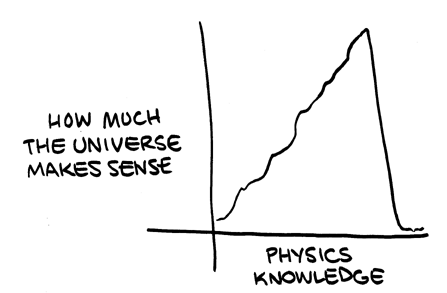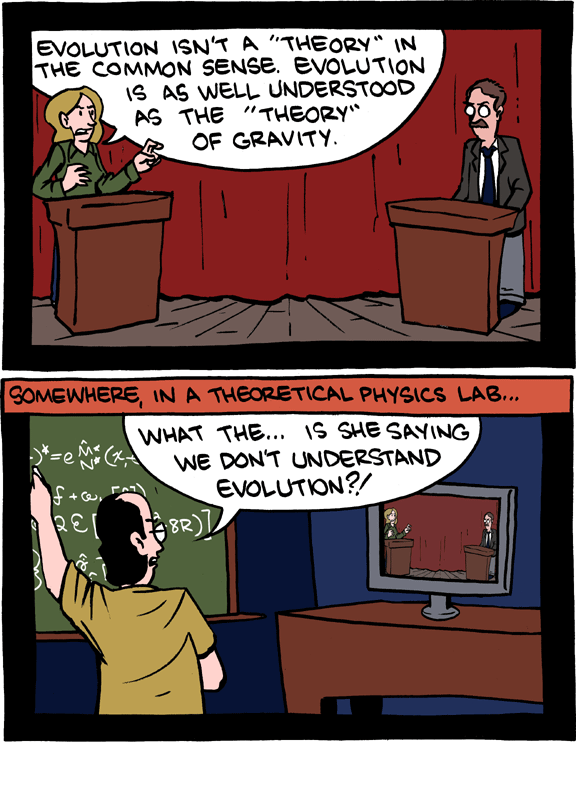this post was submitted on 12 Jun 2024
717 points (98.9% liked)
Science Memes
11047 readers
2843 users here now
Welcome to c/science_memes @ Mander.xyz!
A place for majestic STEMLORD peacocking, as well as memes about the realities of working in a lab.

Rules
- Don't throw mud. Behave like an intellectual and remember the human.
- Keep it rooted (on topic).
- No spam.
- Infographics welcome, get schooled.
This is a science community. We use the Dawkins definition of meme.
Research Committee
Other Mander Communities
Science and Research
Biology and Life Sciences
- [email protected]
- [email protected]
- [email protected]
- [email protected]
- [email protected]
- [email protected]
- [email protected]
- [email protected]
- [email protected]
- [email protected]
- [email protected]
- [email protected]
- [email protected]
- [email protected]
- [email protected]
- [email protected]
- [email protected]
- [email protected]
- [email protected]
- [email protected]
- [email protected]
- [email protected]
- [email protected]
- [email protected]
- !reptiles and [email protected]
Physical Sciences
- [email protected]
- [email protected]
- [email protected]
- [email protected]
- [email protected]
- [email protected]
- [email protected]
- [email protected]
- [email protected]
Humanities and Social Sciences
Practical and Applied Sciences
- !exercise-and [email protected]
- [email protected]
- !self [email protected]
- [email protected]
- [email protected]
- [email protected]
Memes
Miscellaneous
founded 2 years ago
MODERATORS
you are viewing a single comment's thread
view the rest of the comments
view the rest of the comments


Is that really the case? I'm a layman so I may fuck this up - but do we truly understand why the locus of an allelomorph can change and how and why which phenotypic traits are affected or unaffected by addition and deletion?
I get the impression there is not model for why sometimes thousands of base pairs can fuck off with no impact, and sometimes it changes the organism unrecognizably.
No there's many known reasons that can happen. Here's just some of them, but in the end it all comes down to understanding that genes code for proteins, little molecular machines. Sometimes there are multiple copies of genes that code for similar proteins or even the same protein, so losing one or even more doesn't really do anything as there's more where that came from. Sometimes there are genes that used to be important but no longer have a role or were made redundant, and are free to sedit. If a gene codes for a protein called an enzyme, sometimes a change in the active site that binds the chemicals for the reaction it assists might be catastrophic, but a change elsewhere doesn't do much because it's not as necessary to the function of the protein. Sometimes changes even result in the a similar amino acid or the exact same amino acid getting put at thag spot (since the genetic code has some redundancies, a different combo might still end up being the same).
Many genes code for proteins called transcription factors. Transcription factors help control expression of many other genes, some of which might also be transcription factors that in turn affect other genes, etc. This can create huge cascades. For instance there are things called hox genes that are very important for creating a cascade that leads to the formation of different body segments, and differentiating the different body segments. Mutations in these genes can be devastating, in some animals leading to the dissappearance or redundant addition of whole body segments.
There is tons more to learn of course on specifics in terms of evolution, genetics, and molecular biology of course. I don't think it's comparable to gravity though, which we seem to have a fundamental gap and irreconcilable theories.
At least coming from a background of life sciences personally, it seems to me evolution is probably better understood than gravity. I think a better comparison to gravity in the life sciences might be abiogenesis (how pre life conditions give rise to life to begin with). Once life is going, evolution, that we have a ton on. Not that we know nothing about abiogenesis, but that it's a difficult outstanding problem.
The theory does not need to explain why. It needs to explain how, and prove that it's happening. We know how traits change over time to form new species, and we know that this does in fact happen. There's always more to learn about specifics, but it's almost certainly not changing that evolution is happening, and the mechanisms for that are pretty well understood.